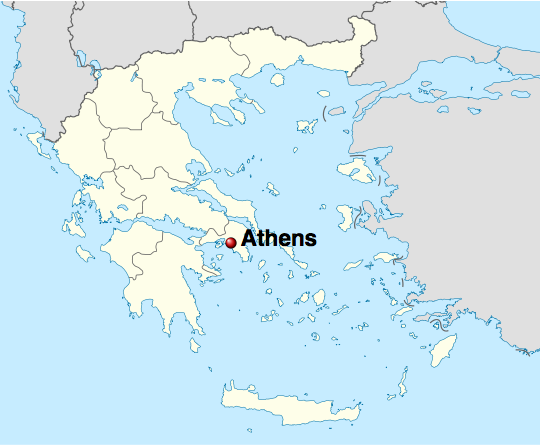More About Athens (Page Seven
 )
)

In Ancient Greek Athens' name was Ἀθῆναι in plural. However, in earlier Greek, such as Homeric Greek, the name was in the singular form, as Ἀθήνη (Athēnē) and was then rendered in the plural, like those of Θῆβαι (Thēbai) and Μυκῆναι (Μukēnai).
The root of the word is probably not of Greek or Indo-European origin, and is a possible remnant of the Pre-Greek substrate of Attica, as with the name of the goddess Athena (Attic Ἀθηνᾶ Athēnā, Ionic Ἀθήνη Athēnē and Doric Ἀθάνα Athānā), who was always related to the city of Athens.
During the medieval period the name of the city was rendered once again in the singular as Ἀθήνα.
However, because of the conservatism of the written language, Ἀθῆναι [aˈθine] remained the official name of the city until the abandonment of Katharevousa in the 1970s, when Ἀθήνα became the official name.
Previously, there had been other etymologies by scholars of the 19th century. Lobeck proposed as the root of the name the word ἄθος (athos) or ἄνθος (anthos) meaning flower, to denote Athens as the flowering city. On the other hand, Döderlein proposed the stem of the verb θάω, stem θη- (thaō, stem thē-, "to suck") to denote Athens as having fertile soil.